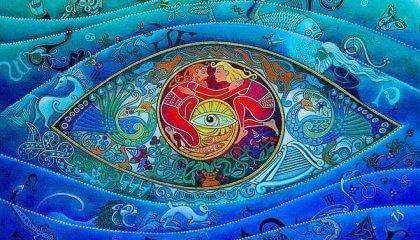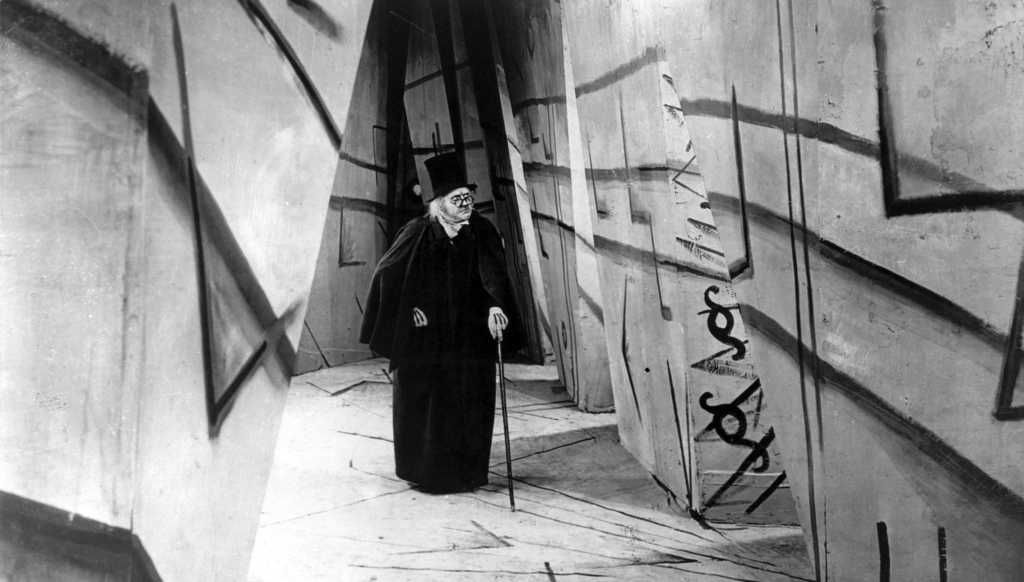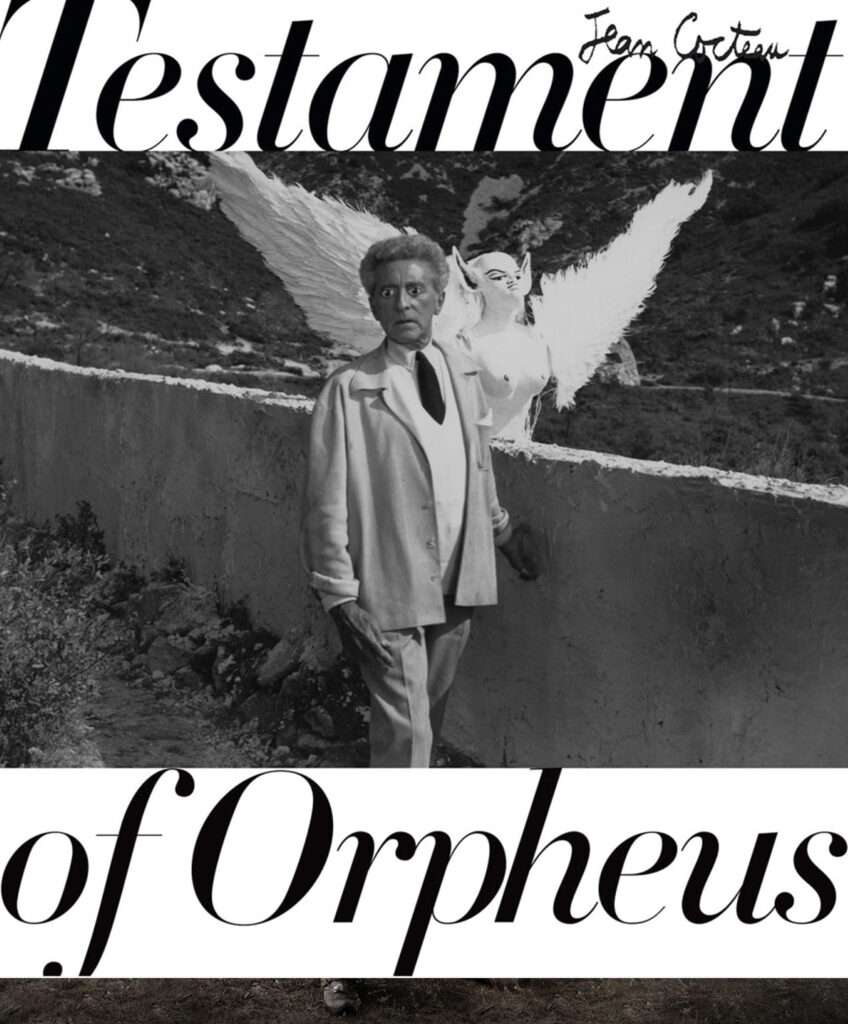The East has always taken much more into consideration the unconscious and the less accessible parts of the mind. In the West, however, society has given much more importance to the conscious mind, to the rational aspect. The importance of listening to the unconscious has been overlooked. In recent decades, however, even in the West, personal growth and issues related to the deepest areas of our psyche have acquired importance.
The unconscious is a huge reservoir of forgotten memories, repressed aspects of our personality and communication with invisible dimensions. Some more or less, we are all in contact with our unconscious but the predominant lifestyle does not give it much importance. The unconscious seems to many people a territory reserved for artists and psychologists. The mysterious world of the irrational seems to belong only to individuals who live outside social norms: who do not have their feet planted on the ground.
The reality however is that the unconscious comprises 95% of our being. Just 5% belongs to the rational mind and its power is much, much less. However much we can lead a life made up of practical things and rational works, however much we can logically plan all aspects of our existence, it is the great current of the unconscious that directs our destinies. This aspect has been understood in the East for millennia, and for this reason we find all kinds of schools and disciplines that concern the inner dimension.
The unconscious creates the external reality

Many are unwilling to admit it: they will blame the outside world, the partner, the crisis, the competition, and a thousand other external things. But with a deeper self-analysis, meditation techniques and more contact with oneself, we realize that most of the events that occur in our life are the result of the continuous work of the unconscious. A job that lasts 24 hours a day for a lifetime.
The unconscious is the part of us that connects us to remote forgotten experiences but of which we have elaborated, without realizing it, the usefulness. When we are presented with a new situation with emotions and events of the same type, it is our unconscious that tells us how to act, and we do it automatically, just like when we have learned to drive a car or walk.
In the unconscious there is 95% of the perceptions of the present moment, of the here and now. What we perceive through the senses, we think, we feel is nothing but a small part. If we can ground ourselves for some time in the present moment, forgetting the thoughts, past and future we continually imagine about, then we realize the power of the unconscious.
The experience of the present moment then appears very rich, and for a few moments we are able to perceive the world as when we were children, without the filter of the rational mind. A filter that begins its process of separating the individual from reality with language learning and grows significantly with school education. The university and the world of work usually represent the final separation with this magic of reality.
The collective unconscious

But the unconscious is not only us, it also includes a collective unconscious. The mind we carry with us was formed over the centuries and millennia. It brings with it the whole experience of humanity, animals, birds, plants. Somehow the collective unconscious knows all these experiences, it is a dimension of ourselves that is not only ours but universal.
The unconscious includes, according to the theories of quantum physics, all the present and future potentials that have not materialized but are in a potential state. Getting in touch with your own unconscious can be of enormous value to refine our intuition and look beyond contingent reality. In other words, being able to grasp the potential of worlds that have not materialized, or that perhaps simply live in other dimensions parallel to ours.
So I don’t exist just for what I am or what I think I am now. There are many other selves who have made different choices. The one who may have chosen to live abroad, the one who has chosen another profession or another partner, an ego that has formed beliefs that are very far from what we have … Each choice is a potential door to another dimension. If certain conditions occur, a world becomes concrete, otherwise another potentiality of it will be realized.
The unconscious therefore represents 95% of our past, our present and our future, and we can consider it the director of the film of life. But then why in Western society is it so undervalued, and most of the potential uncovered represent only fictional stories? Because without the birth and continuous strengthening of a logical mind and our rational conscious part, the individual cannot be integrated into society, cannot be part of any group, association, school or family.
Unconscious and social rules
The unconscious is an experience of individual depth and cannot be integrated with social structures and rules: it is pure anarchy. But it is an anarchy that can reveal the true flow of things to us. Many people are not willing to venture into the unknown of the unconscious: this would mean being more and more alone and not being able to belong to groups and associations. The unconscious is a force that leads us to the truth but which makes it impossible to follow external rules. The price to pay can therefore be isolation and loneliness.
The unconscious dealing with the unknown and the unknowable and this is scary. Its power is that what is known today was unknown yesterday, It was possible to know it by going into the unknowable. Science believes that existence can be interpreted at any level, but there is a part of the unknown that cannot be explained from any scientific point of view.
In fact, many artists are not integrated with social rules and feel the problem of loneliness and marginalization, of the conflict between society and the individual. The logic of the creative man is precisely that of remaining continuously in contact with his own unconscious and the most unknowable currents of his soul. All this takes him inexorably away from the exterior and its rules, from the superficiality of social groups. The creative man inexorably feels that he belongs only to himself and that he can find what he seeks only in his own mind.
Unconscious and individual truth

This moment, however, sooner or later comes for everyone. This descent into the depths of oneself can be postponed for many years, but sooner or later the moment arrives that the superficiality of the external world is no longer enough for us. After postponing for a long time we will be forced to confront our unconscious, the force that has somehow shaped our life. We will be forced to go and seek that truth about ourselves even though we have been concerned with simple and practical things all our life.
But can one live then only in the world of the unconscious? A lot of artists have done it but ended up having big problems. The potential of the unconscious in fact needs a rational container within which they can be told. Without this container there is a risk of fragmentation and madness. A fragmented self explodes into many small pieces and loses contact with reality: this is what has happened to so many artists. Many others, on the other hand, have also been lucky in the external world and in society: they have managed to integrate the unconscious and consciousness, the rational and irrational world, intuition and logic, mystery and concreteness.
And certainly this is the real way to go to exploit the richness of the personal and collective unconscious, as explained by the masters of psychology Freud and Jung. Understand that most of us are made up of these boundless irrational worlds but don’t overlook or deny the rules and logic, which allow us to really profit from them. Without a logic and a rational and coherent narration, the submerged treasures of the unconscious are not brought to the surface.
Cinema and the unconscious
Cinema and the unconscious have a very close and indissoluble bond. They communicate with us by the same means: images. From many points of view, cinema seems to have been born precisely to probe the spaces of the unknown, the unknowable and the unconscious. Of all the arts and the one that works most like our mind: it produces moving images. Cinema is an extraordinary means for the filmmaker and the public to get in touch with that part of us submerged in the depths of our being.
Surrealism reaffirmed the importance of the unconscious and the irrational in film and art. Expressionism explored the dark side of our psyche and its fears. Impressionism told subjective stories where the perception of the world was the artist’s inner one. Many avant-garde movements have been nothing more than attempts to reaffirm the strength of the unconscious aspects of life.
Many directors have done this by exploring their most irrational fears, others by giving more importance to the brighter parts. But the fact that fantastic cinema has established itself much more in the history of cinema than the real is proof that the public likes, through a film, to get in touch with its irrational and unknown world.
Here are some films that allow us to explore the depths of the unconscious.
Dementia

In an endless night in Los Angeles of a lonely woman at the mercy of the fears of her own unconscious. An experimental film that has become a cult over the years, a mix of horror, noir and expressionist film, based on a dream of the director’s secretary. A film that speaks exclusively with images and symbols, just like our most irrational part.
The hands of Orlac

A famous pianist, Orlac, is forced to replace his precious hands with a transplant after a train accident. He’ll get the hands of a murderer. A film that is a path of reflection on the darkest parts of us that we cannot accept. One of the latest masterpieces of expressionist cinema that more than any other avant-garde has been able to represent on the big screen the deepest fears of the unconscious and the irrational. A film about double personality and the destructive force of unconscious forces when they are not used creatively.
Haxan

Witchcraft, desecration of tombs, torture and witches in this legendary film, which seen today seems far more avant-garde than most contemporary horror and fantasy films. Swedish director Benjamin Christensen tells us how the unconscious that is not accepted by the rational part of man can turn into madness. And it can even be interpreted by the dullest men as a demonic evil force.
The Cabinet of Doctor Caligari

The number one expressionist horror film, written and shot in the symbolic language of the unconscious. In a small town Caligari is a barker at fairs to present his phenomenon: a sleepwalker who sleeps in a coffin. The doctor argues that the sleepwalker is able to know the past and predict the future. The most important expressionist film is nothing more than a great staging of the unconscious, both for the sets and for its characters. Dreamlike atmospheres and deformed landscapes as in dreams, rarefied dialogues and double personalities. The sleepwalker represents in a certain sense that part of us unconscious that is beyond the social mask and personality.
The dream of Homer

What are the dream images of those who live without seeing? Homer’s Dream is a dream documentary about the dreams of 5 people blind from birth who have established a strong relationship with their unconscious with the habit of remembering and telling their dreams through a voice recorder. Oral notes that each of them records every day when they wake up and that make up the narrative voice of the film.
The Shout

The paranormal powers of the unconscious are told in this short film where a young aspiring scientist has a shared dream with his woman and meets a mysterious character who claims to have the ability to kill with the force of his scream. All the work of the poet and filmmaker Jean cocteau can be interpreted as a search for enlightenment. The settings are the mysterious symbols of a dream world and the characters
Testament of Orpheus

The latest film by poet and filmmaker Jean cocteau. His entire poetic and cinematographic journey could be interpreted as a search for enlightenment through creativity and poetry. Dreamlike settings and symbolic characters who are lost souls that cause death and resurrection. With an exceptional cast made up of the painter’s friends who offered to work for free on the film. A research on the relationship between art and life and on the ultimate meaning of existence.
Altin in the city

A young Albanian immigrant works in a butcher’s shop but dreams of becoming a famous writer. The film is continually crossed by oneiric ignitions. Altin’s dreams are signs of a suffering unconscious trying to communicate to warn him about his life. The relationship with one’s roots and with her mother, ambition and dreams of glory, the fear of losing any point of reference. A film that mixes realistic language with dreamlike and visionary sequences. Including a strange, surreal and memorable ending.
Carnival of souls

A cult horror that is absolutely worth seeing. After a car accident, Mary comes out unscathed while all her friends die. She finds a new job as an organist in a church near which there is a strange pavilion on the shore of a lake which she feels attracted to. The apparitions of a ghostly figure (played by the director himself) haunt her. Very special and original film that also influenced David Lynch. A suspended and unreal atmosphere. A world that exists only in the protagonist’s unconscious.
The blood of a poet

All of Jean Cocteau’s work is nothing more than a deep descent into the unconscious through poetry and imagination. In his first work The Blood of a Poet, poetry becomes cinema. Jean Cocteau is one of those rare filmmakers who use cinematographic art as a means of personal artistic expression. Film that can only be defined in part surrealist: it is a story where the director gets involved in the first person and reflects on his intuitions, on an unknown and unknowable world that will characterize his entire career.
The conquest of the Pole

In this extraordinary masterpiece by George Melies, the journey to distant lands, as in his other films, becomes a journey into the abyss of the unconscious. A fantastic and surreal world where monstrous creatures can suddenly appear: the scene of the appearance of the giant ice monster is one of the scenes in the history of cinema that you absolutely must see.






